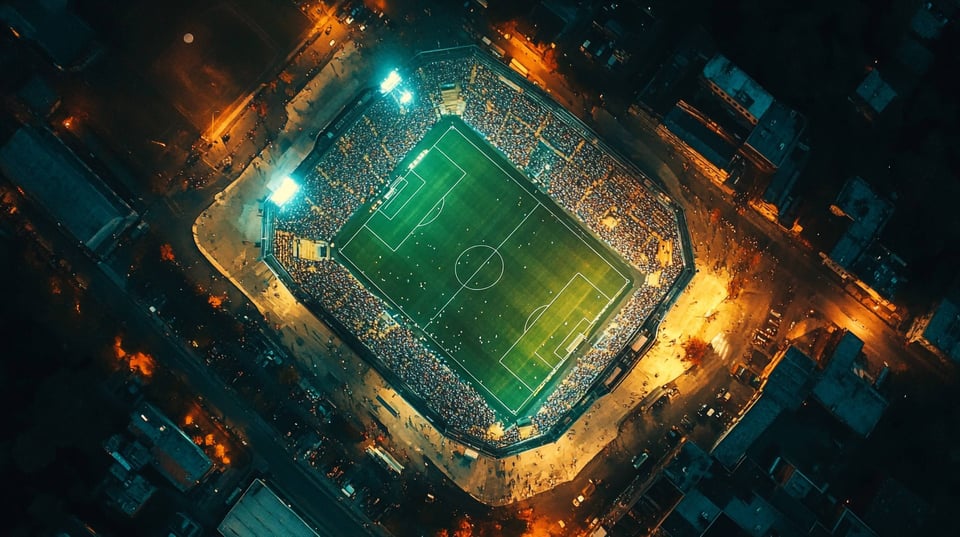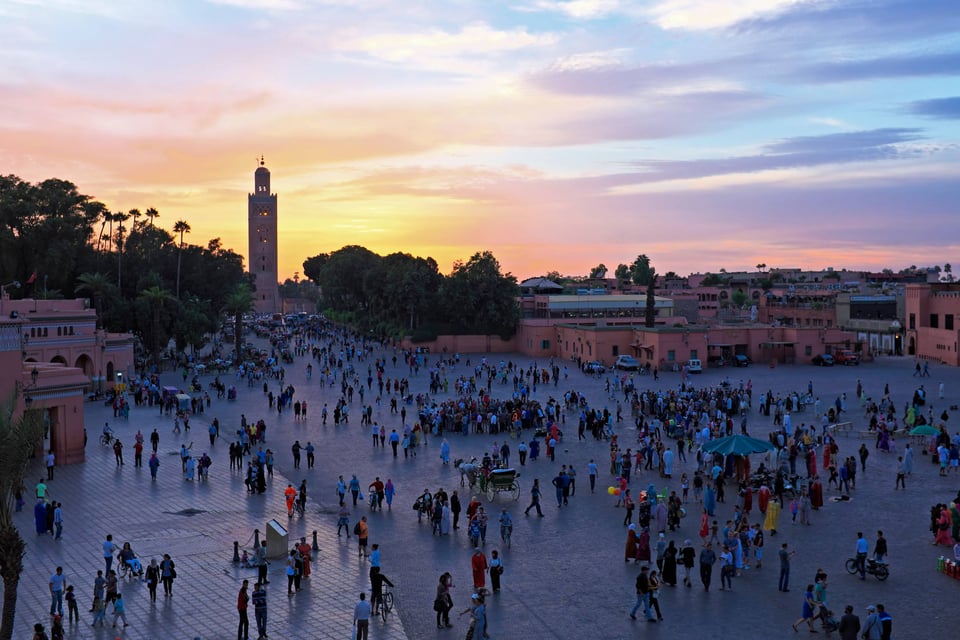AFCON 2025 In the Heart of Morocco
Morocco is hosting the Africa Cup of Nations (AFCON), bringing international football, supporters, and large-scale travel activity across several host cities. The tournament period has placed Morocco at the centre of continental attention, with visitors arriving for matches, events, and general travel.

A City Experience Rather Than a Single Venue Event
Unlike sporting events centered on one metropolitan area, AFCON 2025 will be distributed across Rabat, Casablanca, Marrakech, Tangier, Agadir, and Fez. Each city has its own rhythm and setting, which means visitors will encounter different styles of public life as they move between matches or stay within one region.
The positioning of stadiums relative to these urban centers will play a role in how visitors circulate. Many supporters may spend more time in city streets and public gathering points than inside stadiums themselves.
Public Fan Zones and Shared Viewing Spaces
Fan zones are organised across major host cities and are designed to accommodate match screenings, food areas, crowd movement, and security arrangements, with local variations depending on city and venue.
These zones are not intended as secondary stadiums. They are designed as shared spaces, where visitors and local residents may gather without requiring match tickets. In many cities, they are expected to become evening meeting points after matches conclude.
Music and Cultural Programs Connected to the Tournament
The final draw ceremony held in Rabat earlier this year provided a preview of the cultural direction being planned. Performances from Moroccan and African musicians reflected both regional heritage and contemporary styles.
Cultural programmes linked to the tournament reflect a mix of local traditions and contemporary performances, with activities varying by city and event schedule.
In addition to planned events, many cultural experiences during the tournament will come from spontaneous public gatherings, open-air cafés, and everyday street activity.
In cities like Marrakech and Fez, visitors may encounter traditional music groups, craft markets, and small food vendors. In coastal cities such as Tangier and Agadir, evening activity often shifts toward waterfront areas, where cafés and open plazas may become informal viewing spots.
Late-day matches and evening events often draw larger crowds, particularly in central areas, fan zones, and transport hubs.
Travelers’ Interaction With Local Life

For many visitors, the experience of AFCON 2025 will extend beyond the stadium gates. City markets, transport hubs, and public squares will play a significant role in shaping how supporters remember the event.
Travelers should expect:
- Steady pedestrian traffic in main squares and commercial streets
- Increased demand at cafés and small restaurants during match breaks
- Area-specific crowd control near large plazas or waterfronts
While these environments are expected to be energetic, visitors should remain aware of their surroundings, especially in dense areas. Carrying essential items securely and staying attentive to personal belongings is advisable in all crowded urban spaces.
Bookings and eVisa Route
AFCON 2025 is more than a tournament to watch from inside the stadium. For supporters considering travel, being prepared for active city environments, shared celebrations, and high public gathering turnout will allow for a more comfortable and informed visit.
Major international tournaments such as AFCON significantly increase travel demand. Visitors planning to attend matches or travel during the tournament period are advised to finalise accommodation, transport, and visa arrangements as early as possible to avoid last-minute complications.
All spectators are required to download Yalla and obtain a Fan ID. The Fan ID will be needed for entry into stadiums and official fan zones.
Depending on ticketing platform rules and travel requirements, visitors may be asked to confirm travel eligibility. Securing your visa early via the Morocco eVisa portal helps avoid delays
Responsible Participation and Visitor Preparation
AFCON 2025 is expected to be a period of increased street activity, with a noticeable presence of security staff and public service teams. Travelers should:
- Keep match tickets and identification documents accessible
- Follow posted signage near stadiums and fan zones
- Avoid unverified event information shared through informal sources
- Monitor official travel announcements for any temporary adjustments to public movement or transport
Respect for local customs and public safety rules will help maintain a positive environment for all attendees. Visitors unfamiliar with Morocco’s cultural context may find it valuable to learn basic greetings and awareness of prayer times, which shape urban rhythm in many districts.
4
Explore More Articles
How to Obtain a Visa for Morocco
Step1: Complete the online application by entering your passport details.
Step2: Make the payment online using a credit card.
Step3: Check your email for the payment confirmation and receive your e-visa.



Dear Sir/Madam, I hope this message finds you well. My name is Gauri Hariharan, and I am a citizen of the Republic of Kosovo. I am writing to kindly ask if Kosovo passport holders are eligible to apply for a visa to visit the Kingdom of Morocco. I would greatly appreciate any information you can provide regarding the visa application process, required documents, and whether your embassy accepts applications from Kosovo citizens. Thank you in advance for your time and assistance. I look forward to your response. Kind regards, Gauri
Dear Sir, Greetings to Embassy of the Kingdom of Morocco in Abuja. I want to use this medium to inform the authority of Embassy of the Kingdom of Morocco in Abuja that I Fatokun Osuolale Olanrewaju Owner/Managing Director of Bigsea Investigation Services registered in Los Angeles, California, USA want to apply for Morroco tourist visa. I want to know the visa requirement for Morocco tourist visa? Waiting to read from you soon. Best Regards, Watokun Owuolale Onanrewaju
Hello! We are currently at the airport waiting for the document so that we can stay in the country, otherwise we will be sent away at this time. Is it possible to send the document as quickly as possible? Can i get it now for the police?
Je suis de nationalité malienne et autoentrepreneur. Dans le cadre de coupe du monde 2026 qui aura lieu au Mexique, Canada les Etats Unis, je souhaite me rendre au Mexico pour cette compétition du 10 au 28 juin 2026. Par contre, je ne parviens pas à remplir le formulaire de carte de tourisme, car le Mali ne figure pas sur la liste des pays sur le formulaire de demande. Pouvez-vous m'aider afin que je puisse effectuer ma demande ? Cordialement,